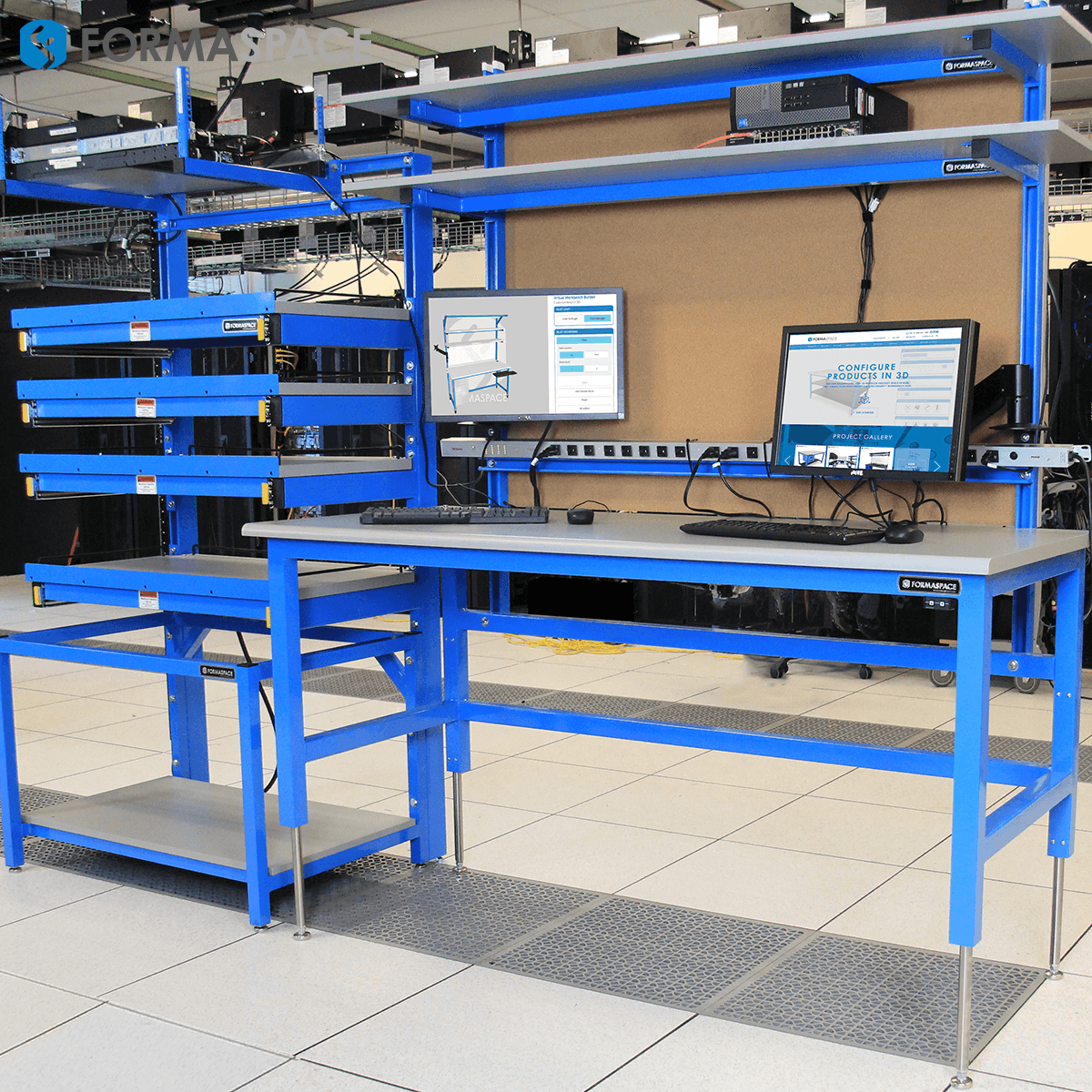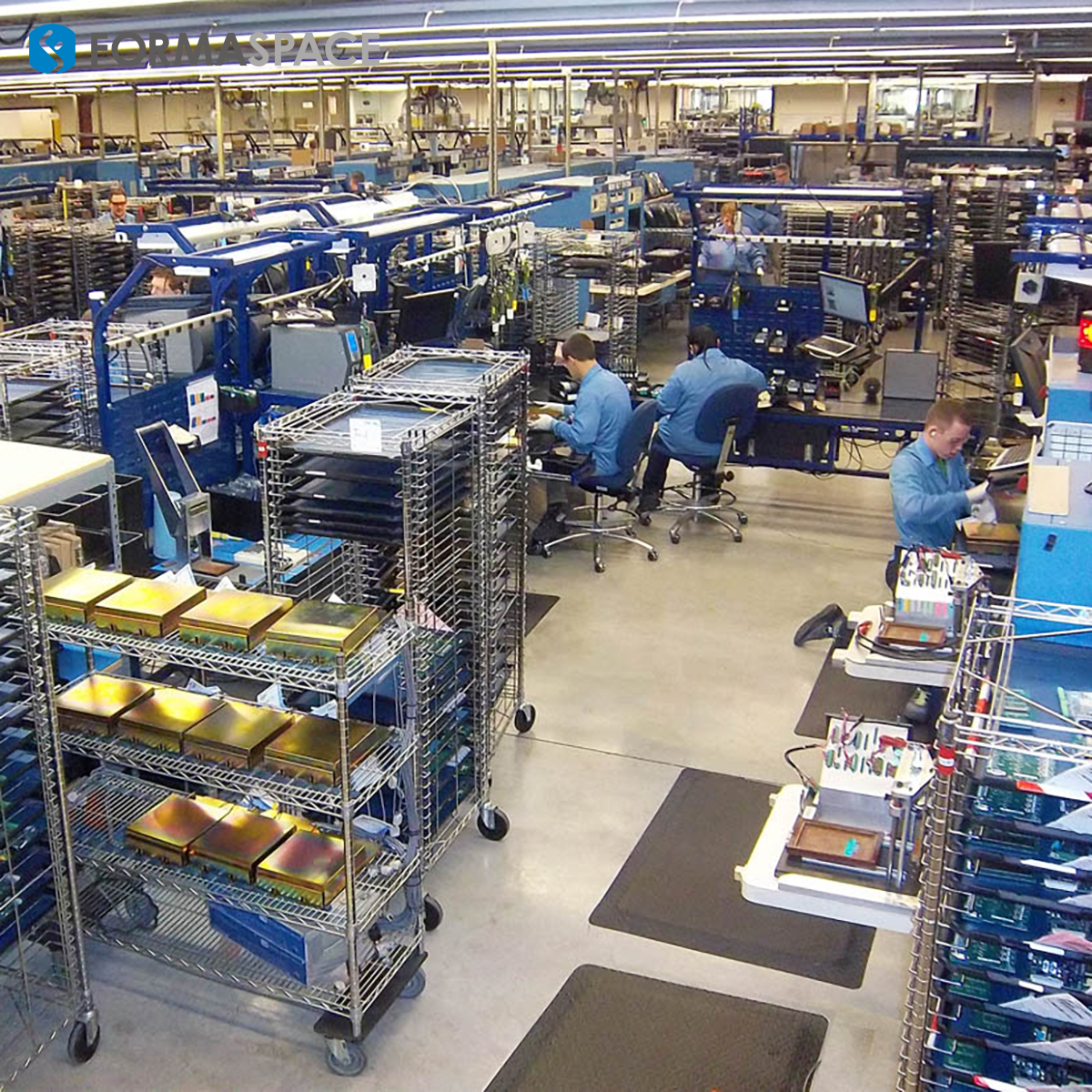Looking for insight into technology trends for 2021?
Here are the top 10 emerging trends that will drive change in the tech market this year and beyond.
1. Today’s Chip-pocalypse and the Coming Electric Car Crash
The start of 2021 was marked by widespread manufacturing shutdowns—not caused by coronavirus outbreaks in factories— but a crippling shortage of computer chips that find their way into everyday consumer products, ranging from phones to computers, to new cars and trucks. Bloomberg estimates that the auto industry may lose over $61 billion in sales during 2021 due to these acute chip shortages. Explanations for the shortfall vary, but analysts point to Huawei stockpiling chips throughout 2020 (in advance of a US export ban) as well as extraordinary demand for high-performance chips from Taiwan Semiconductor Manufacturing Company (TSMC).
Today’s microprocessor chip shortages could mark the beginning of more serious component and raw material shortages as car and truck manufacturers undertake a massive transformation from ICE motors to electric propulsion systems.
Efficient batteries and electric motors rely on rare earth metals such as lithium and other materials that are in short supply, especially outside of China, which has invested heavily in rare earth mining.
The result may throw a wrench into the Biden administration’s favored plan (inspired by a whitepaper written by the UAW) to promote EVs as a way to boost the economy with green jobs. It may also mean that major companies will face difficulties meeting their goals of switching over to 100% EV production (GM by 2035, Ford by 2030).
2. Solid State Batteries, Wooden Skyscrapers, and Lab-Grown Chicken Nuggets: Ideas that Could Save the Planet
Climate change has been on everyone’s mind as a polar vortex swept south this month and brought the Texas electrical grid down to its knees, leaving millions (including most of us at Formaspace) without power or even access to water for several days.
Our second tech trend is a renewed focus on climate change resiliency and the adoption of new technologies that can reduce harmful carbon pollution into the atmosphere.
As Bill Gates writes in his new book, “How to Avoid a Climate Disaster: The Solutions We Have and the Breakthroughs We Need,” there are five areas he believes we need to focus on:
- Reducing the 51 billion tons of greenhouse gases emitted each year.
- Manufacturing, especially cement and steel production, amounts to the biggest chunk (31%) of greenhouse emissions, bigger than transportation by car, truck, or plane.
- We need green alternatives to power a world that currently consumes 5000 GW of energy each year – or alternatively, we need to consume less.
- Space is a consideration. Some green solutions take up vast land areas, including wind farms or biomass cultivation.
- As always, money is the big issue but so is informed decision-making. Yet, how can we prioritize what actions to take if we don’t understand the relative costs of investing or doing nothing.
We predict that in 2021 new technologies, even crazy-sounding ones, such as wooden skyscrapers, lab-grown chicken meat, heat pump water heaters, or Toyota’s upcoming solid state batteries (capable of recharging EVs in just 10 minutes) will become more widely adopted to help meet the climate change challenge.
3. Forget 5G. StarLink is the Future.
Space is back, as anyone who watched the heartwarming success of NASA’s Perseverance Rover successfully touching down on Mars will attest. If all goes right, we’ll see an unprecedented rollout of exploration technology in the coming days, including NASA’s remarkable Mars Ingenuity Helicopter set to fly across the Martian landscape.
But, barring the discovery of actual Martians on Mars, there’s a space technology development closer to home that may have a greater immediate impact.
We’re talking about Elon Musk’s StarLink venture, which has launched a massive number of near-earth satellites to provide Internet access and phone service emergency backup communications capabilities here on earth.
StarLink reports it already has over 10,000 customers, a number that is sure to grow thanks to increased demand for high-speed Internet access and remote locations, fueled by work from home types who want to live the cabin-in-the-woods lifestyle.
If StarLink lives up to its promise, this type of near-earth satellite communication system may prove to offer far more tangible benefits than the rollout of terrestrial-based 5G cellular services, making it our 5th tech trend of 2021.
4. All IT Infrastructure is Compromised All the Time
Our next tech trend is frankly a bit dispiriting.
Over the past year, we became aware of major hacking attacks that have infiltrated computer systems—once considered to be very secure—at large government agencies and major private corporations.
Security analysts believe that Chinese state actors were responsible for compromised hardware systems manufactured by Super Micro Computer Inc. in San Jose, California, that allowed remote access into sensitive government systems.
Equally troubling is the infiltration of enterprise software monitoring products from Austin-based SolarWinds, which allowed foreign actors (presumably Russians) access into nearly every major US government agency and quite a few prominent corporations as well.

And this month, we’ve seen the first publicly reported attempt to hack into public utilities where the motivation appears to be, frankly speaking, to cause physical harm. The incident took place in Florida at a small water treatment facility, and the as-yet-unnamed hacker used remote login software to increase the concentration of water treatment chemicals to a dangerous degree, which, if it had not been discovered by chance, could have caused countless injuries or death to the public.
Even the recent new hardware from Apple is not immune, as security analysts report hackers have crafted new malware for Apple’s homegrown M1 chips.
‘New York Times’ cybersecurity reporter Nicole Perlroth, who has written a new book on cyber threats facing the US, This Is How They Tell Me The World Ends, is very pessimistic. She writes that there is an active market for new computer hacking discoveries, and in some cases, government spy agencies around the world, like the NSA, choose to pocket these hacks rather than reveal them in order to crack into other government systems.
What is the tech trend here?
The reality is we may have to drastically change our assumptions about computer security – and start to assume all the systems we use on a daily basis are vulnerable and may have already been compromised in some way.
This change of mindset will require a major rethink on whether we can safely store confidential data in computer systems in the future.
5. The End of Social Media as We Know It
The public internet is tracking the history of radio, an industry which in its early stages was dominated by enthusiastic amateur broadcasters, later followed by the emergence of corporate broadcasters, and finally dominated by a few national networks (Columbia, DuMont among others), which fell under Federal regulations by the newly minted FCC in 1934.
Today’s major social media companies are the radio network giants of our era, and the gloves are coming off.
There is massive money to be made – and fought over. Even a relatively small dating site, Bumble, debuted on Wall Street with a $2.15 billion IPO, while an ex-Googler has created a $61 billion business in “virtual gifts” for gamers.
With so much money swirling around social media, it’s not surprising that traditional news publishers (who feel cheated financially by “freeloading” social media news aggregators) and government taxing authorities (who are eyeing new sources of tax revenue) both want in on the action.
The state of Maryland, which threw down the gauntlet by proposing the first-ever US tax on online advertising, was met with an immediate lawsuit by Amazon, Facebook, Google, and other technology giants.

The situation is even more extreme in Australia, which argued that search companies such as Google should compensate publishers for linking to articles, which has led to Google threatening to pull out of the search business in Australia entirely, and Facebook to prohibit Australian users from linking to outside news sources.
At the same time, companies such as Google are reaching side deals with major publishers, including Rupert Murdoch and his Wall Street Journal and Fox News empire, to compensate them for linking to their content.
These conflicts are not limited to government agencies. Apple is duking it out with Facebook over user privacy issues by making it harder for Facebook advertisers to target specific user groups (unless users voluntarily opt-in to tracking), which could threaten its ad revenue model.
All of this comes at a sensitive time for social media companies, which are very dependent upon Section 230 of the Digital Millennium Copyright Act (which hold them harmless for the content posted by their users) as Congress considers making changes, particularly in light of controversial actions such as Facebook and Twitter banning ex-President Trump from their platforms.
The bottom line? The freewheeling days of the open Internet are coming to a close. Look for more government control over social media, which ironically, may help the big companies grow even bigger as they’ll be able to afford to comply with new regulations, pay compensation to publishers, and pony up for the inevitable government taxes on advertising income.
6. Fintech Gets Punked by Gamification in the Bro-conomy
Social Media: Things are getting a little crazy over here.
Fintech: Hold my beer.
Pioneering developers in the financial technology market (collectively known as fintec) probably had noble goals in mind when they took on the challenge of creating modern banking and financial investment tools – essentially following the footsteps of other industries that were transformed by digital technology, such as the way Uber and Lyft upended the taxi market and eBay, Etsy, and Shopify have “democratized” the e-commerce market.
So what happened to the fintech market?
Bitcoin, with its revolutionary blockchain technology, has dropped all pretenses of being a modern digital alternative to money; instead, it’s become a vehicle for speculators who have bid up the price of an individual Bitcoin to nearly $53,000, with some analysts muting the possibility it could rise up to $1 million or more. The price has risen so high that one hapless UK Bitcoin owner, who mistakenly discarded a hard disk containing the keys to his Bitcoin fortune, has offered a multimillion reward to dig up the local landfill and locate the missing disk.
Bitcoin is also open source, so it’s easy to “fork” the software into new variants, leading to a number of copycat digital currencies, the most preposterous of which is “Dogecoin” whose valuation skyrocketed up to $9 billion, in part thanks to a supportive Tweet by Elon Musk. Yet, despite the nod to Dogecoin, Musk ultimately used Tesla funds to invest $1.5 billion in Bitcoin, which as of this writing, increased by a third since the purchase.
But, as crazy as the Bitcoin saga has been, the recent speculation in GameStop stock may have topped it. The story here is well known at this point, but to summarize, users of the new no-fee stock investing Robin Hood, which targets younger nontraditional investors, took their cue from an investment discussion group on Reddit to bid up this sentimental but otherwise lackluster stock in an effort to financially ruin hedge investors who had taken a large short position in the stock. (Here again, Elon musk promoted this effort using the bro lingo Stonk.) Robin Hood subsequently limited trades with many fingers pointing to possible market manipulation to protect the hedge fund investors.
The entire messes have been thrown into the lap of the SEC, and a congressional investigation, in which one of the main advocates of investing in game stop, Keith Gill, known as “Roaring Kitty” on YouTube, famously testified to House Financial Services committee: “I am not a cat.”
The bottom line is that the “gamification” of fintech tools can lead to rapid speculation – as just as the high margin stock trading craze did 100 years ago, which ended in the 1929 stock crash. Hopefully, this new digitally-powered speculation trend won’t take today’s economy down with it.
7. A Podcast is Worth 10,000 Words
Sharing short-form videos on TikTok was one of the hottest tech trends in 2021.
This year, the trend has shifted to sharing audio feeds, primarily in the form of podcasts, which now attract more than 90 million listeners each month, according to Edison Research.
With over 800,000 active podcasts (representing over 54 million podcast episodes) available worldwide, podcasts are now the fastest-growing advertising medium, albeit it’s starting from a very tiny base, bringing in less than $1 billion in ad revenue.
Anticipating long-term growth, there is a lot of consolidation underway as major media companies are recruiting individual podcasts to join their networks or acquiring smaller media companies that publish multiple podcast titles.
Podcasts are not the only format that’s garnering attention in the audio trend.
The social media platform Clubhouse is building out a community using short-form audio clips in what the Guardian describes as a “hybrid of conference calls, talkback radio, and Houseparty.”
(Just a Millennials might view TikTok as a rehash of six-second Vine videos, Baby Boomers might see Clubhouse as the second coming of the 1970’s CB radio craze. Ten-Four Good Buddy!)
The audio format has room to grow in other directions as well. For example, AI-powered real-time translation systems make it possible to speak in one language to listeners hearing the broadcast in their native tongue.
8. You’ve Got a Frenemy in AI
AI loves me. AI loves me not.
We are starting to develop a schizophrenic attitude toward artificial intelligence.
AI can do amazing things, from accurately diagnosing clinical diseases (such as Alzheimer’s) to preventing suicides among vulnerable populations.
But AI can also do creepy things, such as creating realistic “fake” people on video or powering interactive chatbots that simulate your long-dead relatives.
As the use of AI becomes more mainstream in evaluating big data and making decisions, ethicists are concerned that it may reinforce many existing stereotypes.
This has real-world consequences. AI is now commonly used in evaluating job applicants or using facial recognition databases to identify criminals caught on video cameras.
But what happens when the decisions are inherently biased? For example, facial recognition of people of color is statistically much less accurate, which could lead to false arrests or even convictions.
This issue came to a head in December, as a leading AI researcher at Google (and co-leader of the company’s ethical AI team), Timnit Gebru, resigned from her post. Two other prominent researchers subsequently resigned in support of Gebru.
The controversy is not over, making developments in AI ethics a trend to watch in 2021.
9. Tech Busts: The Technologies of the Future that May Not Come True
Some promising technologies, like fusion power, always seem to be five years in the future.
One overly hyped new technology, autonomous vehicles, may soon fall into this category.
Progress has been slow, and, aside from ex-President Trump pardoning the former Google engineer who stole a self-driving car while at Uber, AVs have been fading from the headlines as the reality of how difficult it is to create a general autonomous vehicle capable of driving in all weather conditions sinks in, particularly in snowy conditions, which can blind the camera sensors.
This has put companies who were counting on launching fleets of AVs, such as Uber, in a bind. Uber, whose rideshare revenue has dropped precipitously during the Coronavirus epidemic as customers shunned riding with strangers, recently canceled its AV research program in favor of investing in expanding its delivery services, notably acquiring the Drizzly alcohol delivery app for a cool $1.1 billion.
10. Boss: We’re Moving the Company to Texas
Employee: I’m Fine Working from Home
Our final tech trend for 2021 is the long-term impact of working from home (WFM) and corporate relocations.
Just as employees who’ve been given the green light to work from home due to the pandemic are choosing to relocate from high-rent cities to suburban or rural locations, so too are high profile executives and corporations.
Elon Musk of Tesla, Starlink, and SpaceX fame is one of them.
He is moving from California to Texas, where SpaceX has a launch facility, and Tesla is building a new EV truck factory near the Austin airport.
Other prominent corporate names are moving to Texas as well, including database software giant Oracle Corp. (also to Austin), and Hewlett-Packard Enterprise (HPE) is moving to Houston.
Texas and Florida (particularly the Austin and Miami areas, respectively) may be long-term beneficiaries of a tech diaspora that has arisen as a consequence of the Coronavirus pandemic.
Formaspace is your IT Technology Partner for Innovative Furniture Solutions

If you can imagine it, we can build it, here at our Austin factory headquarters.
We help keep your IT department working efficiently with industrial-strength furniture solutions that deliver an ergonomic work environment for your tech workers.
Talk to your Formaspace Design Consultant today and find out why some of the most famous names in technology – including Apple, Dell, Google, SpaceX, and Twitter –choose custom furniture solutions from Formaspace to stand apart from the crowd.










